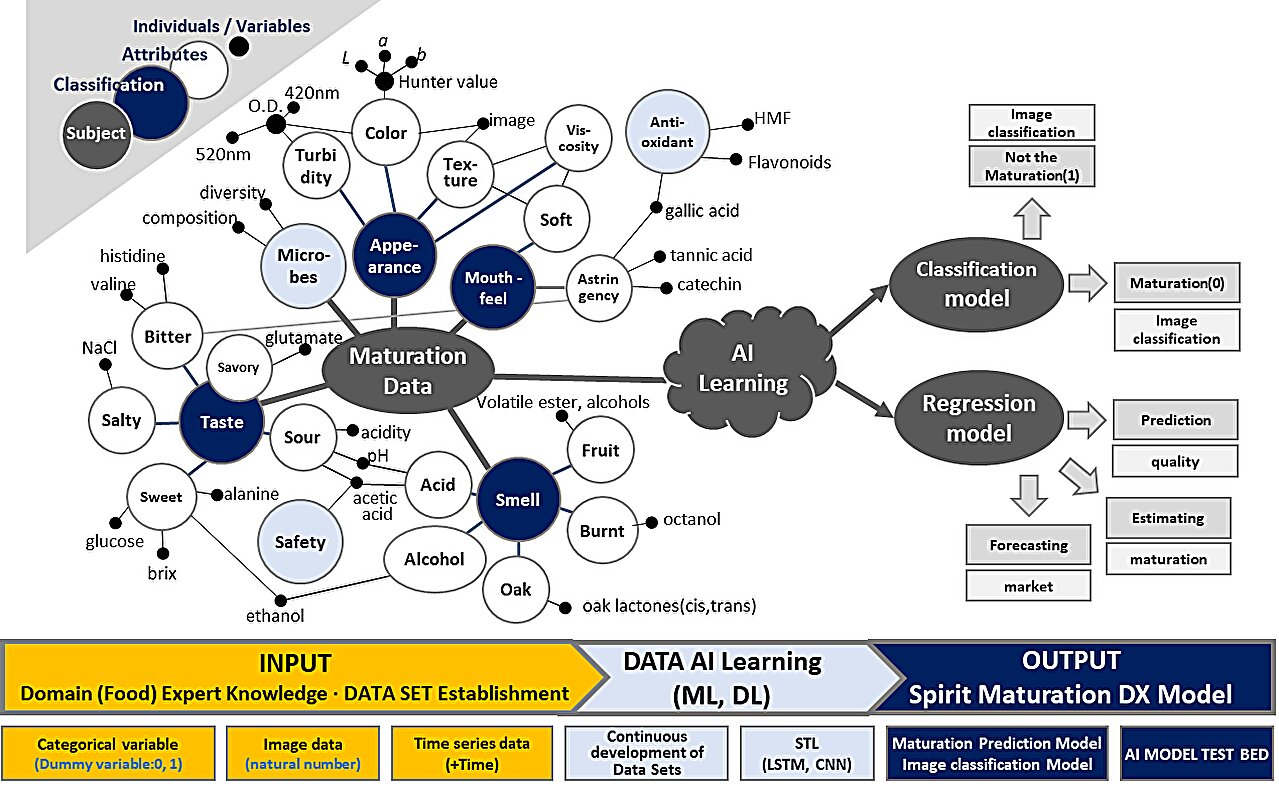From Craft to Code: The Evolution of Korean Alcohol Production

For centuries, Korea has stood at the heart of fermentation culture. Traditional Korean alcohols made from rice, nuruk (fermentation starter), and water were perfected through the intuition and lived experiences of brewers, shaped by seasons and climate.
Subscribe to our newsletter for the latest sci-tech news updates.
From Makgeoli and Cheongju to Soju, traditional Korean liquor has never been just a beverage; it is a cultural legacy infused with the philosophy and way of life of the Korean people.
In modern society, reliance solely on traditional methods faces limitations in ensuring consistent quality and scalable production. Numerous variables, including temperature, humidity, nuruk variability, and environmental fluctuations during maturation, significantly affect outcomes. While the craftsmanship and experience of master brewers remain indispensable, translating their knowledge into data is desirable.
Researchers from the Korea Food Research Institute have published an article in the journal Food Science and Industry that explores this topic.
Data turns brewing into science
Advances in science and technology have yielded promising results. Smart brewing systems that integrate AI, the Internet of Things, sensor technology, and big data analytics convert many variables that traditional brewing lacked full control over into quantifiable and predictable elements.
Factors including temperature, pH, acidity, sugar content, and dissolved oxygen exert crucial impacts on fermentation. By collecting and analyzing these biochemical data in real-time, brewers can monitor fermentation with scientific precision. AI can detect anomalies in fermentation curves early and recommend corrective actions to stabilize quality.
Distillation (the separation of alcohol from fermented mash) is also being modernized. In the past, distillers used sight, sound, and smell to decide when to collect or discard distillate. This subjective methodology requires deep experience.
AI and modern sensors can track temperature, alcohol content, and volatile compounds in real time, making the distillation curve easier to control. Yield and quality can be improved, and AI can suggest adjustments to reduce defects and keep flavors consistent.
The maturation process is also being scientifically explored. Alcohol matures in clay jars or oak barrels over extended periods, making precise control of time and environmental conditions difficult. Modern maturation technologies enable brewers to collect and learn from data on temperature, humidity, cyclic patterns, physicochemical changes, and aromatic compound biosynthetic pathways.
By learning from and precisely controlling these variables, brewers can predict maturation outcomes. AI-based sensor analysis processes these data to anticipate specific flavor and texture profiles, supporting the design of alcoholic beverages tailored to desired styles.
Does AI threaten tradition?
Efforts to reinterpret traditions through science can spark concerns regarding cultural dilution. However, technology does not replace tradition. It functions as a tool for deeper understanding and growth. AI helps articulate tacit knowledge passed down through generations of master brewers, making it possible to systematize and preserve the heritage of traditional Korean alcohols.
Owing to this technology, traditional Korean alcoholic beverages are poised to go global. As domestic and international spirit markets increasingly value unique stories, flavor profiles, and sustainability, Korea's traditional liquors are evolving beyond their folk origins. Labels like "data-driven matured liquor" and "AI-blended soju" reflect these new identities.
The Korea Food Research Institute collaborates with local distilleries to develop AI models trained on maturation data from traditional Korean spirits. This is not merely a matter of efficiency. It represents a critical step in the evolution of Korean alcohol as it aims for a place at tables around the world.
Dr. Tae-Wan Kim from KFRI states, "In conclusion, the evolution of Korean alcohol is not about technology surpassing tradition, but about embracing tradition through data and science.
"While preserving the essence of brewing, AI expands its potential and leads traditional Korean liquor to a new generation. The future globalization of Hallyu-inspired K-spirits will begin with brewing science, where experience meets technology and emotion coexists with data."
More information: Tae-Wan Kim et al, Nobel project for food maturation DX : Methodological attempt to build DATA SET of food maturation process, Food Science and Industry (2024). DOI: 10.23093/FSI.2024.57.3.249
Provided by National Research Council of Science and Technology
This story was originally published on The News Pulse .
Post a Comment for "From Craft to Code: The Evolution of Korean Alcohol Production"
Post a Comment